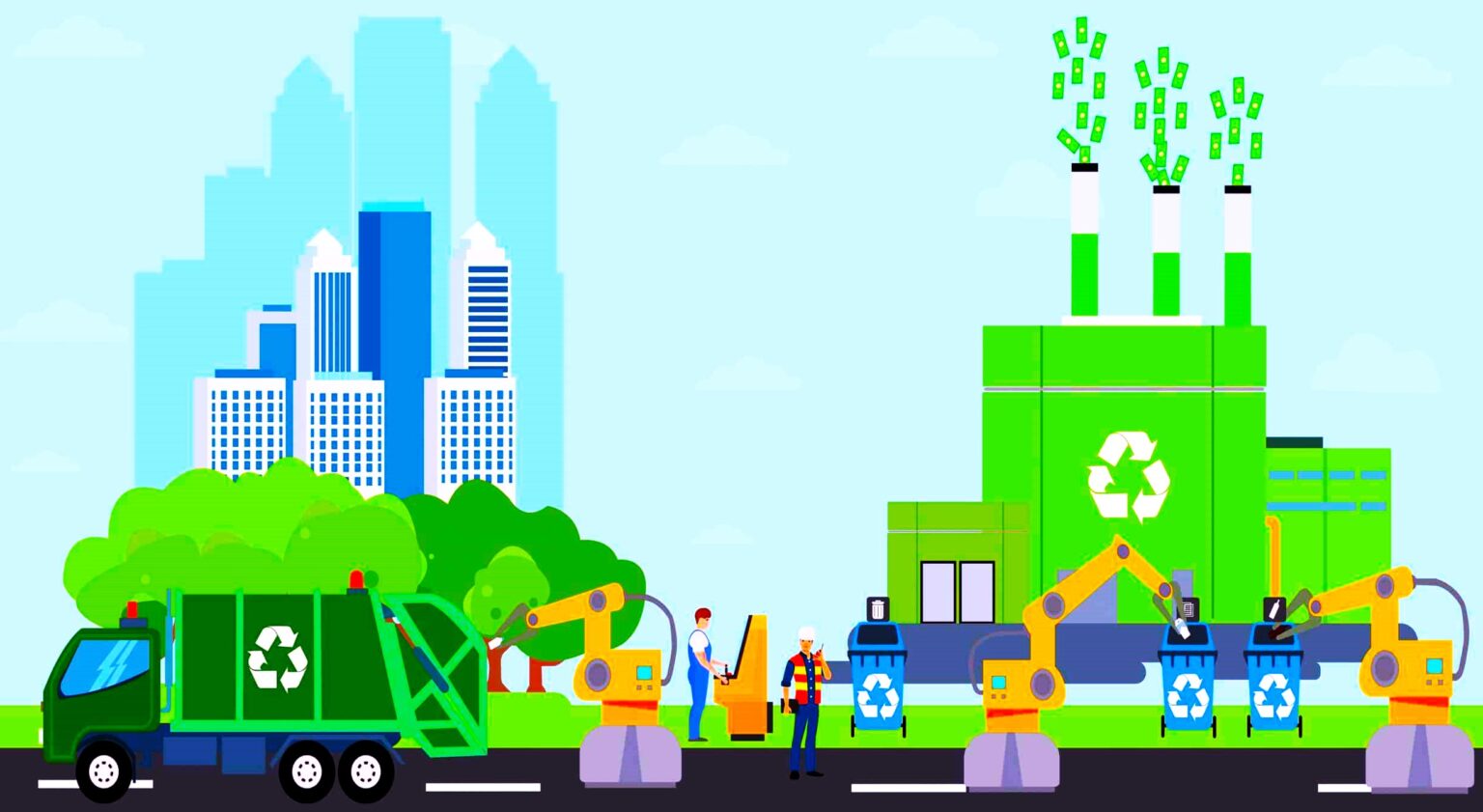The importance of waste management in our urban environments cannot be understated. Inefficient systems can lead to many problems, from increased pollution to higher operational costs. Traditional waste management practices often involve manual processes that are time-consuming and prone to errors. However, these issues can be significantly mitigated with new waste management technology. Using technology in waste management, businesses can enhance their operations, lower their ecological impact, and improve their overall productivity.
SMART waste management technology employs Internet of Things (IoT) devices, sensors, and data analytics to modernize traditional waste management practices. This innovative approach ensures more efficient and sustainable operations, transforming how we manage waste in cities and businesses. As cities grow and waste generation increases, the need for more intelligent, efficient waste management solutions becomes even more crucial.
Understanding SMART Waste Management Technology
Advanced tools and systems are being utilized to revolutionize the waste management industry through SMART technology. IoT devices and sensors are essential in offering immediate waste-level data to improve collection schedules and minimize mistakes. These technologies empower waste management companies to oversee better, forecast, and improve their activities.
Critical Components of SMART Waste Management
- IoT Sensors: Installed in waste bins, these sensors report the fill levels to a central system, allowing for timely collection and reducing the risk of overflow. These sensors are pivotal in providing accurate and real-time data, which forms the backbone of SMART waste management technology. They can detect the fill levels and the type of waste, helping in better sorting and recycling processes.
- Data Analytics: Analyzing sensor data helps understand waste generation patterns and predict future collection needs. Data analytics tools can identify trends and anomalies, providing insights that lead to more informed decision-making. This way, waste management processes can be continuously improved and optimized for efficiency and sustainability.
- GPS Tracking: By tracking waste collection vehicles, GPS systems help in route optimization, ensuring efficient resource use. GPS tracking allows waste collection routes to be dynamically adjusted based on real-time data, reducing fuel consumption and operational costs. This leads to fewer vehicles on the road, reducing emissions and a smaller carbon footprint.
- Automated Collection Systems: Robotics and computerized systems reduce the need for manual labor, increasing operational efficiency. Automated collection systems can handle waste more consistently and hygienically, minimizing human exposure to potentially hazardous materials. This leads to safer working conditions and more reliable waste management operations.
Benefits of Implementing SMART Technology
The advantages of utilizing SMART waste management technologies are numerous:
- Operational Efficiency: Businesses can use live data to enhance garbage collection routes, decreasing fuel usage and overhead expenses. Efficiency improvements from SMART technology also lead to quicker responses to waste management demands, ensuring that collection timetables are consistently followed.
- Environmental Impact: SMART systems reduce excess waste, reduce greenhouse gas emissions, and create a cleaner environment. By implementing better waste management methods, resources are saved, and recycling programs become more successful, aiding in developing a circular economy.
- Cost Savings: Optimized routes and the efficient use of resources translate into significant savings for municipalities and businesses alike. Over time, the investment in SMART technology pays off through lower operational costs and reduced environmental liabilities. These funds can be redirected towards more sustainability projects, increasing the beneficial effects.
Real-World Examples and Case Studies
Many urban areas have effectively incorporated SMART technology into their garbage disposal systems. For instance, Seoul and San Francisco have reported marked improvements in efficiency and environmental benefits. These cities showcase the potential of SMART waste management to transform urban waste practices positively. In Seoul, the implementation of sensor-based waste collection has reduced the incidence of overflowing bins, leading to cleaner streets and happier citizens. Similarly, San Francisco has significantly reduced waste collection times and fuel usage thanks to route optimization and real-time data monitoring.
Challenges and Considerations
Despite the clear benefits, implementing SMART waste management technology can be challenging. Initial setup costs can be a barrier, and there might be resistance from those accustomed to traditional methods. Transitioning to SMART systems requires a significant upfront investment in technology and training. Moreover, ongoing maintenance and system upgrades can add to the costs. Data privacy and security are crucial concerns that must be addressed to ensure public trust and system reliability. Businesses must implement robust cybersecurity protocols to protect sensitive information from being compromised and misused.
Future of Waste Management
The future of waste management is closely tied to the development and adoption of SMART technologies. As more cities and organizations embrace these systems, we expect to see a significant reduction in waste-related challenges and a move towards more sustainable urban environments. The widespread adoption of SMART waste management technologies can lead to cleaner cities, more efficient resource use, and a healthier planet for future generations. You can refer to this BBC article on SMART cities for an insightful perspective on how SMART cities are shaping the future.
Conclusion
SMART waste management technology is essential for tackling urbanization and environmental sustainability challenges. Waste management organizations can achieve significant efficiencies by adopting these advanced systems and contribute to a cleaner, healthier planet. The benefits of SMART waste management extend beyond operational efficiencies, offering environmental and social advantages.


